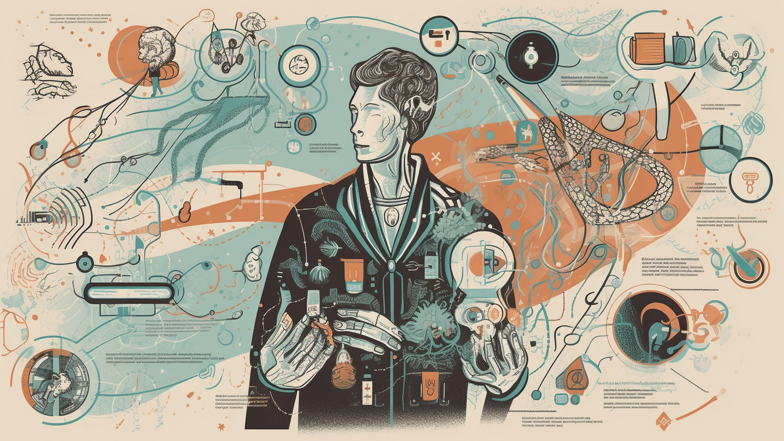
Genomic medicine is a key component of personalized medicine that uses an individual's genetic information, or DNA, to customize healthcare solutions to their unique needs. Advances in genomic medicine and IT innovation now allow clinicians to identify specific genetic variations that may indicate a patient's susceptibility to certain diseases, allowing for early detection and preventive care options. Genetic testing has now become more affordable and accessible, allowing for personalized healthcare solutions.
Furthermore, electronic health records (EHRs) have made it easier for clinicians to access patients' genomic data to develop more individualized treatments. Genomic medicine combined with advanced EHR systems and data analytics can help clinicians understand a patient's health risks better and identify the best treatments for them, improving their overall health outcomes.
AI is another technology driving the transformation of personalized medicine. AI algorithms can analyze vast sets of data to provide data-driven insights and decision-making tools. AI can analyze patient's genomic and medical history data, identifying patterns and predicting the likelihood of disease. AI-powered diagnostic tools can assist clinicians with accurate and efficient diagnoses, enabling doctors to provide personalized treatment plans for patients.
With AI, clinicians can access vital patient information, such as medical history and test results, and analyze it using AI algorithms to develop personalized treatment options. Machine learning algorithms can help patients to have regular check-ups and alert clinicians promptly if there is a change in their health status. Also, as AI tools learn from historic data, they can suggest personalized treatments, based on what has worked for a patient with a certain disease in the past.
However, AI is not a replacement for physicians, but it is a tool that empowers healthcare providers to provide personalized care solutions that lead to better outcomes for patients.
Data analytics, yet another innovation driving personalized medicine, refers to the use of information technology to collect, manage and analyze large data sets for insights and decision-making purposes. With the advent of big data, clinicians can gather and analyze large volumes of patient data to identify trends and patterns for early detection and prevention of diseases. Data analytics helps clinicians to understand the patient's diagnosis, leading to better treatment planning and personalized care. Additionally, data analytics also aid healthcare organizations in waste and cost reduction by identifying inefficiencies such as duplicative laboratory testing and treatments, which can lead to improvements in cost efficiency.
The implications of personalized medicine go beyond technological advancement and better care outcomes. Personalized care represents a profound shift in healthcare paradigms, requiring a cultural shift in how care is delivered and received. Specifically, personalized medicine presents new challenges to healthcare professionals, including ethical considerations, regulatory compliance, and clinical decision-making.
Moreover, personalized medicine places significant responsibility on the healthcare system, which must be prepared to support large-scale, individualized healthcare solutions. To this end, healthcare systems must be flexible and innovative in their approach to delivering personalized care, including implementing remote patient monitoring and telemedicine options. The use of these technologies makes it possible to provide personalized care from a distance, a boon to patients who find it challenging or inconvenient to visit a healthcare facility.
Despite the challenges, personalized medicine has the potential to revolutionize healthcare, providing better outcomes for patients and reducing healthcare costs. However, for this to happen, the healthcare industry must embrace IT innovation fully. Healthcare professionals should adopt technologies like AI and data analytics to provide personalized care solutions. Comprehensive EHRs and information sharing mechanisms can secure patient data while ensuring that clinicians have access to the data they need to provide personalized care.
In conclusion, IT innovation is vital to unlocking the full potential of personalized medicine, transforming the way healthcare professionals deliver care, and improving outcomes for patients. The advances we have seen in genomics, AI, and data analytics are driving the direction of personalized medicine. Embracing these innovative technologies can help healthcare professionals to better understand and target illnesses, reduce waste and inefficiency, as well as improving overall healthcare outcomes for all. It is up to healthcare providers to embrace IT innovation to achieve the full benefits of personalized care for their patients.
Comments
Post a Comment